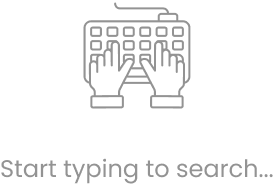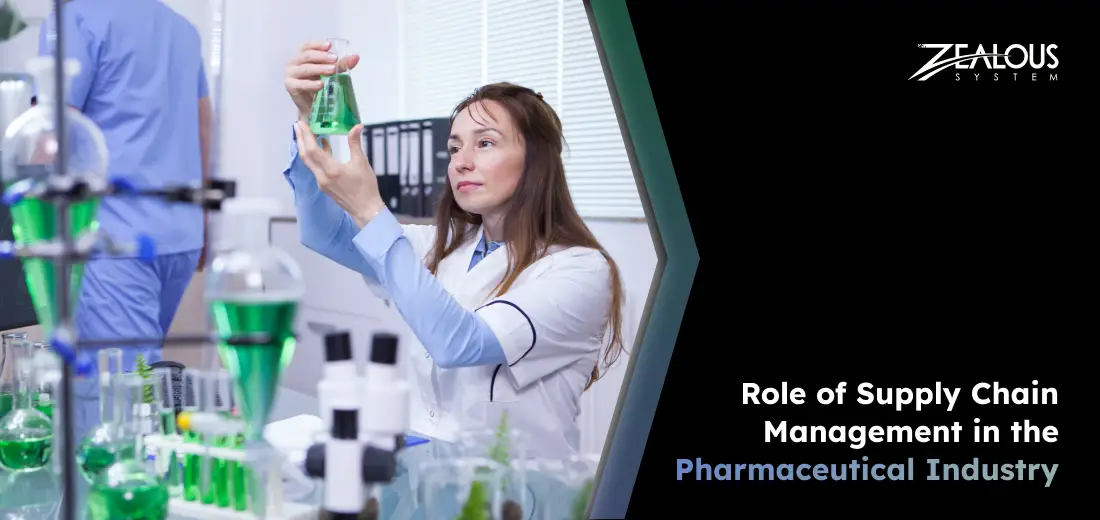


The pharmaceutical industry depends on a strong and efficient supply chain to ensure medicines and healthcare products reach people worldwide. A well-organized supply chain is essential because it helps pharmaceutical companies operate smoothly and improves patient health.
An efficient supply chain offers many advantages. It ensures medicines arrive on time and in good condition, preventing treatment delays and keeping drugs effective. It also reduces costs by accurately managing inventory and predicting demand, which minimizes waste and improves production planning.
New technologies are improving pharmaceutical supply chains, making them more efficient and solving common challenges. Cold chain management keeps temperature-sensitive medicines safe. Blockchain technology improves drug tracking and prevents counterfeit medicines from entering the supply chain. Advanced analytics and AI help predict medicine demand and automate routine tasks, making the supply chain faster and more adaptable.
This blog covers the benefits, applications, and challenges of supply chains in the pharmaceutical industry.
Over the past 20 years, the pharmaceutical industry has become more interconnected worldwide. This has led to a significant increase in the trade value of medical products, rising from $113 billion in 2000 to $629 billion in 2019. However, this globalization has also made their supply chains more complex.


The pharmaceutical industry depends on a well-managed supply chain to deliver medicines and medical supplies on time. Here are the main benefits of an efficient supply chain:
A well-structured supply chain reduces costs by managing inventory better, simplifying purchasing, and minimizing waste. These savings can be used for research, development, or lowering medicine prices for consumers.
Strict quality control measures ensure medicines meet industry standards and regulations. Proper handling, storage, and transportation prevent contamination and damage, keeping medicines safe and effective.
A strong supply chain prevents shortages and excess stock by adjusting inventory based on demand. This reduces waste, lowers storage costs, and ensures medicines are available when needed.
A reliable supply chain delivers medicines quickly and in good condition. This is especially important for life-saving drugs, where delays can be dangerous.
Pharmaceutical companies must follow strict manufacturing, storage, and distribution rules. A well-managed supply chain ensures compliance with regulations like Good Manufacturing Practices (GMP) and Good Distribution Practices (GDP).
Working closely with suppliers, distributors, and logistics providers helps companies stay flexible and adapt to market changes. This ensures medicines remain available, even when demand shifts or supply chain issues arise.
Advanced technologies like predictive analytics and blockchain provide real-time supply chain insights. Companies can use this data to manage inventory better, predict demand changes, and improve operations over time.
Read Also: How To Develop Supply Chain App?

The pharmaceutical supply chain plays a key role in delivering medicines and medical supplies safely and on time. Below are some important ways it works:
Some medicines, including vaccines and biologics, must stay at specific temperatures to remain safe and effective. Cold chain management ensures proper storage, transport, and monitoring so these products stay within the right temperature range from production to patient use.
Serialization assigns a unique identifier, such as a barcode or RFID tag, to each medicine. Track and trace systems then follow these identifiers through the supply chain. This helps companies comply with regulations, prevent counterfeit drugs, and quickly handle recalls or quality issues.
Managing inventory efficiently ensures enough stock is available while reducing waste. Advanced inventory systems use data and predictions to track expiration dates, adjust stock levels, and coordinate supplies between warehouses and distribution centers.
Strong supplier relationships help pharmaceutical companies get reliable materials. Supplier relationship management (SRM) involves monitoring supplier performance, conducting quality checks, and collaborating for improvements. A well-managed SRM strategy helps reduce risks and negotiate better purchasing deals.
Accurate demand forecasting helps companies plan production, procurement, and distribution. Using data analysis, past sales trends, and market research, businesses can predict demand changes and adjust supply levels. This prevents shortages, reduces storage costs, and improves response times.
Pharmaceutical companies prepare for disruptions like natural disasters, political changes, and material shortages by strengthening supply chain resilience. Strategies include using multiple suppliers, keeping emergency stock, and creating backup plans to ensure smooth operations.
Companies are focusing more on patient needs by offering direct deliveries, specialized pharmacy services, and patient support programs. A patient-focused supply chain improves medication adherence, enhances patient satisfaction, and provides personalized healthcare solutions.
Read Also: The Latest Supply Chain Technology Trends
The pharmaceutical industry faces many challenges in managing its supply chain. Strict regulations, high-quality standards, and the need for safe global distribution make the process complex. Below are some major challenges and how our solutions help overcome them.
Challenge:
Pharmaceutical companies must follow many rules and maintain detailed records. Keeping up with changing regulations takes a lot of time and effort.
Solution:
Our Regulatory Compliance Platform simplifies compliance by automating paperwork and providing instant updates on regulation changes. This reduces legal risks and ensures your business stays compliant.
Challenge:
Some medicines, like biopharmaceuticals, need to be stored and transported at specific temperatures. Any temperature fluctuation can make them ineffective.
Solution:
Our Cold Chain Management Solution uses IoT and real-time monitoring to maintain precise temperatures. Advanced sensors and analytics ensure medicines remain safe and effective throughout the supply chain.
Challenge:
Counterfeit medicines are a big concern. Traditional tracking methods do not always provide a clear and tamper-proof record of product movement.
Solution:
Our Blockchain-Based Traceability System creates a secure and transparent tracking process. It records each product’s journey from production to delivery, ensuring authenticity and reducing counterfeit risks.
Challenge:
Poor demand forecasting can lead to shortages or excess inventory. Traditional forecasting methods may not accurately predict market demand.
Solution:
Our AI-powered Inventory Management System analyzes past data, market trends, and real-time information to predict demand accurately. This helps maintain the right inventory levels, saving costs and preventing waste.
Challenge:
The pharmaceutical market changes rapidly, making it difficult for businesses to adjust quickly.
Solution:
Our Digital Transformation Services use AI and real-time analytics to help businesses stay flexible and respond to market changes. This ensures your supply chain remains efficient and competitive.
Challenge:
Timely delivery of medicines, especially life-saving ones, is crucial. Supply chain disruptions, transport issues, or unexpected events can cause delays.
Solution:
Our Real-Time Monitoring and Predictive Analytics System provides full supply chain visibility. IoT-powered tracking and smart analytics help prevent delays by offering early insights and quick decision-making.
By using our new technologies and custom software development services, your business can tackle these challenges and become stronger, more efficient, and better ready for the future of managing pharmaceutical supply chains.
Read Also: How GPS Tracking Transforms Supply Chain Management?
The supply chain begins with sourcing raw materials such as active pharmaceutical ingredients (APIs), excipients, and packaging materials. Pharmaceutical companies work with reliable suppliers to ensure the quality and safety of these materials.
Once raw materials are available, manufacturers produce medicines in controlled environments. This stage follows strict guidelines to maintain quality and regulatory compliance. The manufacturing process includes formulation, quality testing, and packaging.
After production, medicines are stored in warehouses under specific conditions. Many medicines require temperature-controlled environments to maintain their effectiveness. Proper storage prevents contamination and extends shelf life.
Medicines are then transported from warehouses to wholesalers, hospitals, or pharmacies. Efficient logistics management ensures timely delivery. Advanced tracking systems help monitor shipments and prevent delays or theft.
In the final stage, medicines reach patients through pharmacies, hospitals, or online platforms. Pharmacists and healthcare providers ensure that patients receive the correct medication with proper guidance on usage and dosage.
Choosing Zealous for implementing supply chain management software development in the Pharmaceutical Industry means investing in accuracy, efficiency, and new ideas. Our team has lots of experience and knowledge in creating custom solutions that fit the special challenges of pharmaceutical supply chains. We really understand the rules and regulations, so we make sure your supply chain meets all the strict standards of the industry. That way, we protect the quality and safety of pharmaceutical products at every step of the process.
At Zealous, we understand how important the supply chain is in the pharmaceutical industry. That’s why we offer advanced software solutions, including our MVP development services. These services are designed to work smoothly with supply chain operations, improving how teams communicate and work together. By doing this, we make everything run more efficiently, cutting down on delays and making sure inventory is managed perfectly.
When you choose Zealous, you’re teaming up with a strategic partner who turns challenges into opportunities. This gives your business an advantage in the fast-changing world of pharmaceutical supply chain management.
Our team is always eager to know what you are looking for. Drop them a Hi!
Comments